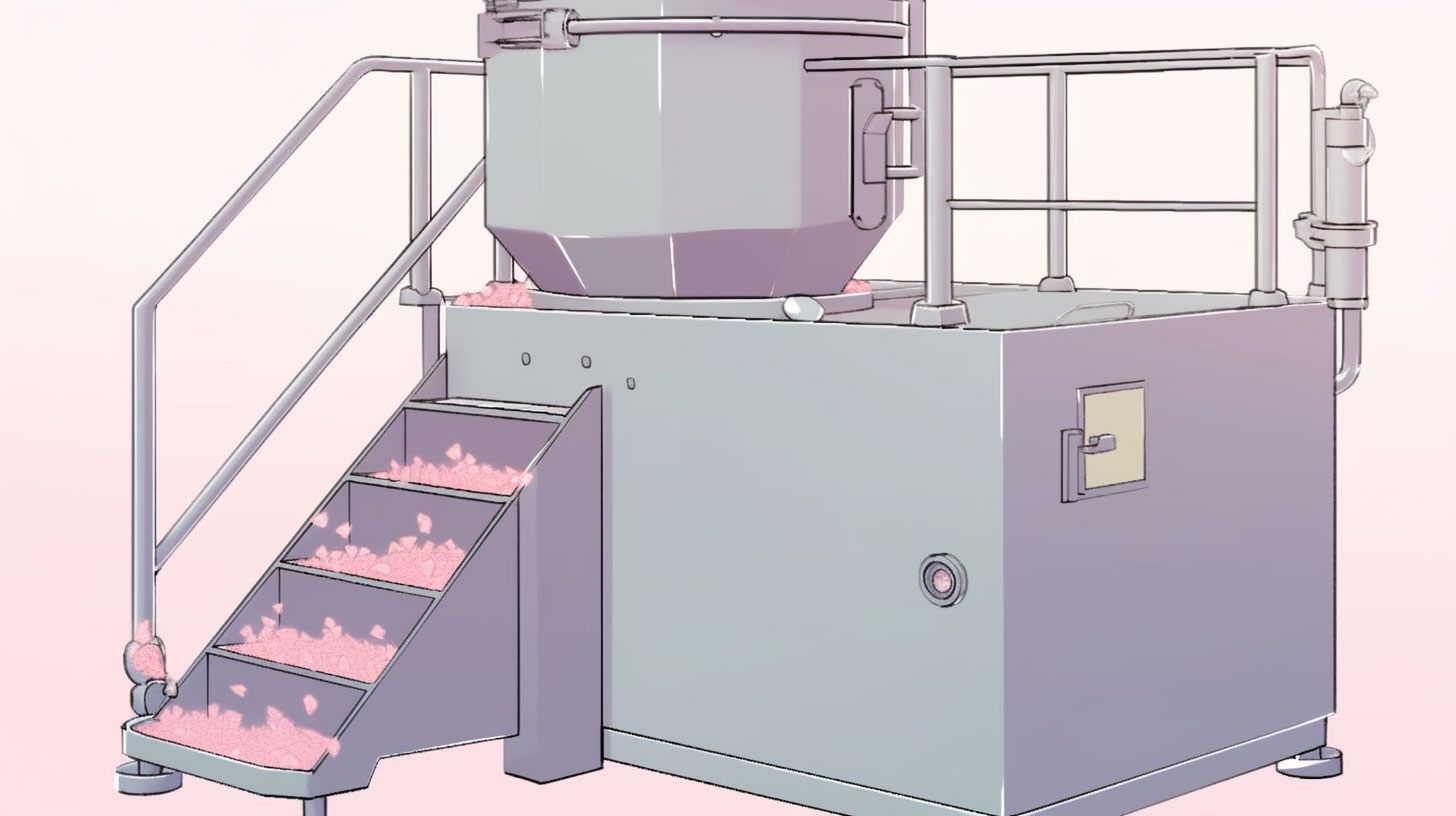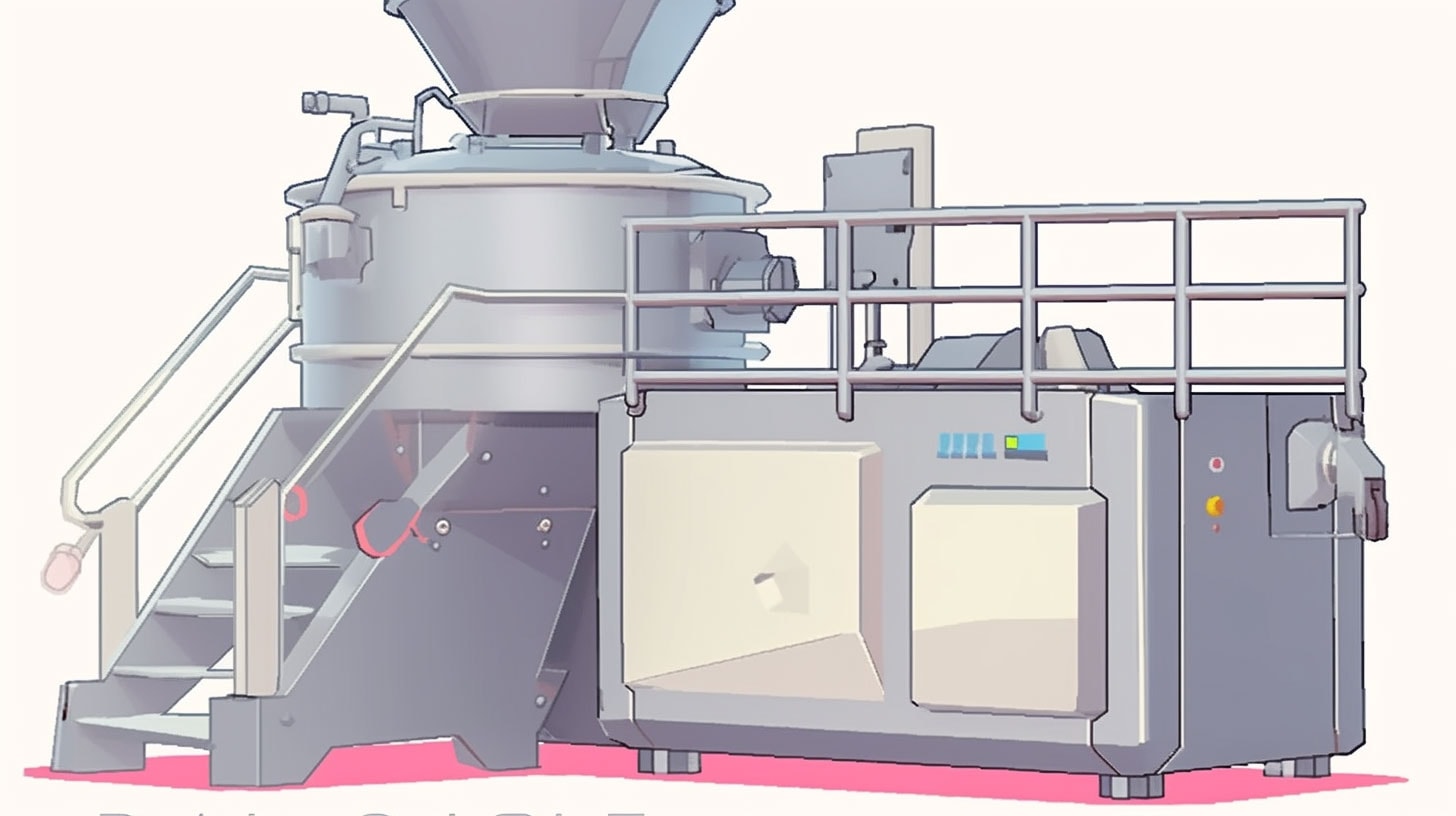
03 Jan Granulators in Action From Pharmaceuticals to Recycling Solutions
The Role of Granulators in the Pharmaceutical, Chemical, and Recycling Industries
I. Introduction to Granulators
What is a Granulator Machine?
A granulator machine is an essential piece of equipment used across various industries such as pharmaceutical, chemical, plastics, and recycling industries. Its primary function is size reduction—breaking down larger materials into smaller, uniform granules for further processing or recycling. Granulators come in different types depending on the nature of the materials they process and the granulation method, typically categorized into wet granulation and dry granulation.
In the pharmaceutical industry, granulators are indispensable for producing the uniform granules needed for the production of tablets and capsules, ensuring consistent product quality. In the chemical industry, they help control the particle size, which can influence chemical reactions and product performance. Meanwhile, in the plastics industry and recycling industry, granulators are used to reduce plastic waste into smaller pieces that can be reused or processed into new products. Granulators also play a significant role in the food industry, where they help process and produce granules from various food materials.
PAG Pharmaland’s Commitment to Granulation Technology
PAG Pharmaland is a leading manufacturer of pharmaceutical machines, specializing in both wet granulators and dry granulators for various applications in the pharmaceutical, chemical, and food industries. These machines are equipped with advanced features that optimize the granulation process, improving productivity, ensuring uniform particle size, and meeting industry-specific requirements.
II. Wet Granulation in the Pharmaceutical, Chemical, and Food Industries
Overview of Wet Granulation
Wet granulation is a widely used process in the pharmaceutical industry, chemical industry, and food industry. It involves combining powders, starches, adhesives, or creams with a granulating liquid to form granules of consistent size and shape. This process is particularly important for applications where granule uniformity is crucial, such as in drug formulation, chemical reactions, and food processing.
In the pharmaceutical industry, wet granulation is used to enhance the compressibility of powders, making it easier to form tablets and capsules. In the food industry, wet granulators are often used to process powdered ingredients, such as flour, sugar, or starch, into wet granules that are easier to handle and package.
Characteristics of the Wet Granulator
Modern wet granulators, like those offered by PAG Pharmaland, are equipped with advanced features designed to enhance solid preparation. These machines are constructed from stainless steel to ensure durability and meet the strict hygiene and safety requirements of GMP standards. Wet granulators are also equipped with PLC control systems and adjustable frequency speed control, allowing for precise control of the granulation process.
The main benefits of wet granulators include:
-
Compliance with GMP and other industry regulations.
-
The ability to process various materials, including moist powder materials, adhesives, and creams, making them suitable for the pharmaceutical, chemical, and food industries.
-
Increased productivity, as these machines can complete both wet and dry granulation in a single airtight container, reducing the use of adhesives and drying time by up to 25%.
-
Uniform granule production, thanks to specially designed stirring and cutting tools.

Technical Specifications of Wet Granulators
Wet granulators come in various models with different capacities, such as the PJHZ-10D to PJHZ-800D. These machines differ in volume, feed capacity, mixing power, and granulation speed, allowing manufacturers to choose the appropriate model for their production needs. For example, the PJHZ-100D model can process up to 45 kg per batch, making it suitable for larger-scale industrial applications.
Advantages of Wet Granulation
Wet granulation offers several advantages, including the ability to produce uniform granules with precise control over particle size. This method is particularly useful for creating granules that need to be compressed into tablets or capsules, ensuring consistent dosage and bioavailability. Additionally, wet granulation helps prevent the separation of ingredients, which can be a common issue when dealing with sensitive powders.
Wet granulators are ideal for applications in the pharmaceutical, food, and chemical industries where consistency and product quality are paramount. These machines can also be integrated with conveying systems to automate the transportation of materials between different stages of production, enhancing overall process efficiency.
III. Dry Granulation in the Pharmaceutical, Chemical, and Recycling Industries
Overview of Dry Granulation
Dry granulation is another widely used method in industries where moisture-based granulation is not feasible. This process is typically used in the pharmaceutical industry to process powders that cannot be wetted. In the recycling industry, dry granulation is employed to reduce and crush dried block stock into granules for reuse in other applications.
Operation of Dry Granulators
Dry granulators work by compressing powders or pastes into compacted forms, which are then broken down into smaller granules. These machines feature a main engine with auxiliary systems such as cooling systems, air purification systems, and automatic control systems. The entire granulation process occurs in a controlled, airtight environment, ensuring that the final product is free from contamination.
Characteristics of Dry Granulators
PAG Pharmaland’s dry granulators are designed with high-performance features such as airtight charging and discharging, making them ideal for the pharmaceutical and chemical industries. These machines are also equipped with temperature control systems and lubrication systems to ensure smooth operation and longer equipment life.
Technical Specifications of Dry Granulators
Dry granulators, such as the PJFG series, offer capacities ranging from 5 kg to 500 kg per batch. These machines are also equipped with compressed air and can operate at high temperatures to process a variety of materials. Key features of dry granulators include their ability to produce granules from dry powders and their adaptability to different industry requirements.
IV. The Role of Granulators in the Recycling Industry
Granulators are essential in the recycling industry as they reduce large chunks of plastic, rubber, and other materials into smaller, reusable fragments.This process is known as plastic recycling and is essential for reducing waste and promoting sustainability. Granulators can reduce dried block stock into smaller pieces, which can then be reprocessed into new products through methods such as injection molding or blow molding.
Plastic recycling often involves the use of conveying systems to transport materials between different stages of the recycling process. Granulators with horizontal axis configurations are ideal for handling large volumes of waste material, as they can continuously process materials without interruption. These machines are also equipped with safety features such as emergency stop functions to prevent accidents during operation.
Recycling solutions offered by granulator manufacturers focus on reducing waste and improving the efficiency of the recycling process. By breaking down plastic, rubber, or other materials into smaller, more manageable pieces, granulators help improve the quality and consistency of recycled products.
V. How to Buy a Granulator Machine
Factors to Consider When Purchasing a Granulator
When selecting a granulator machine, several factors must be considered to ensure that the machine meets the needs of your specific process. Key considerations include:
-
Granulation method: Determine whether you need wet granulation or dry granulation for your process.
-
Capacity: The amount of material that the granulator can process in one batch.
-
Material compatibility: Ensure that the granulator is suitable for the materials you plan to process, whether they are powders, plastics, or dried materials.
-
GMP compliance: In industries like pharmaceuticals and food, it’s crucial to select a granulator that meets regulatory standards for cleanliness and safety.
-
Integration with conveying systems: If your process requires the automatic transfer of materials between different stages, ensure that the granulator can be integrated with other equipment in the production line.
Plastic Granulators: Special Considerations
For the plastics industry, it’s important to choose a granulator designed specifically for plastic recycling. Key considerations include the cutting chamber design, feed and discharge methods, and the ability to process large volumes of waste material.
Service and Warranty
PAG Pharmaland offers a comprehensive one-year limited warranty on all granulators, ensuring that your machine remains in optimal condition. Additionally, the company provides lifetime service and support, offering peace of mind and ensuring the long-term success of your production processes.
VI. The Importance of Granulators in the Pharmaceutical, Chemical, and Food Industries
The Role of Granulators in the Pharmaceutical Industry
Granulators are crucial for producing uniform granules for tablets and capsules. By ensuring precise control over particle size, granulators help maintain product quality and consistency, which are critical in drug formulation. Granulators in the pharmaceutical industry must meet GMP standards to ensure that the products are safe for consumption.
The Role of Granulators in the Chemical Industry
In the chemical industry, granulators help improve the efficiency of chemical reactions by ensuring that the raw materials are broken down into the required granule sizes. This leads to better product performance and higher-quality chemical compounds.
The Role of Granulators in the Food Industry
In the food industry, granulators are used to process powdered ingredients into uniform granules, which are easier to handle, package, and distribute. Granulators help improve the consistency of products like spices, sugars, and flours. Additionally, granulators used in food processing must meet stringent hygiene standards and be easy to clean to prevent contamination.
VII. Conclusion
Granulators are essential in a wide range of industries, from pharmaceutical and chemical to food and recycling industries. Whether using wet granulation or dry granulation, granulators ensure that materials are processed efficiently and uniformly. The ability to integrate these machines with conveying systems and other equipment enhances overall production efficiency.
PAG Pharmaland’s commitment to quality and innovation makes them a leading provider of pharmaceutical machines and granulators. With a wide range of machines designed for various applications, PAG Pharmaland ensures that companies in the pharmaceutical, chemical, food, and recycling industries can achieve their production goals while maintaining the highest standards of safety and efficiency.
